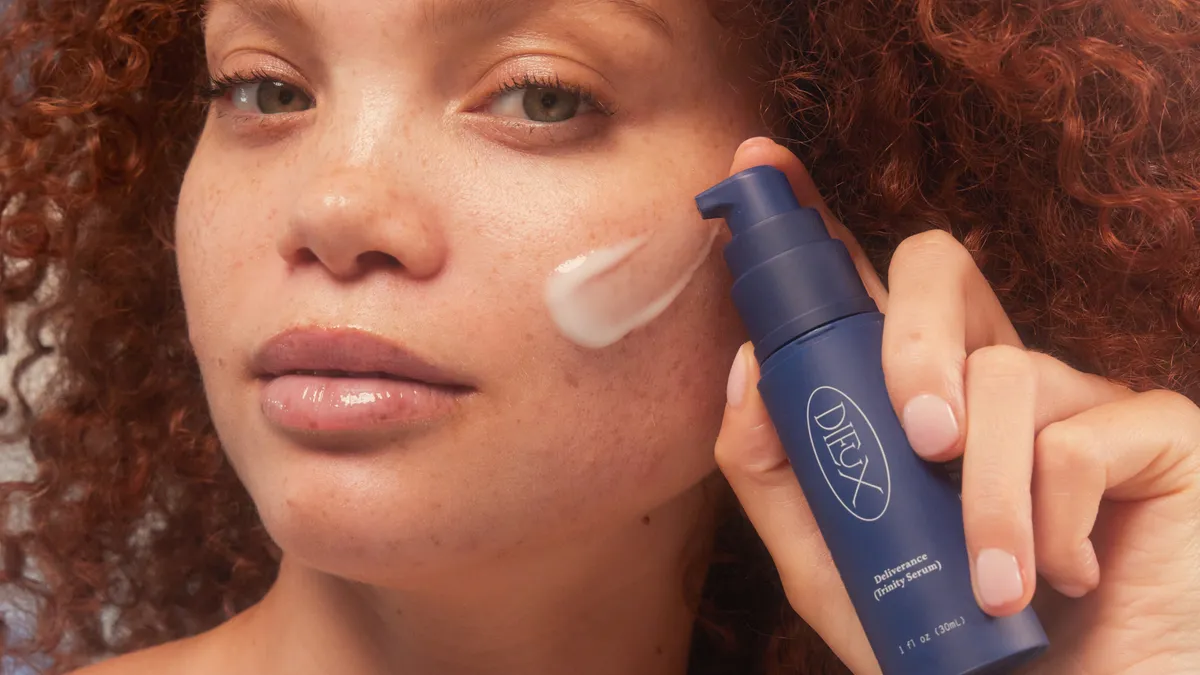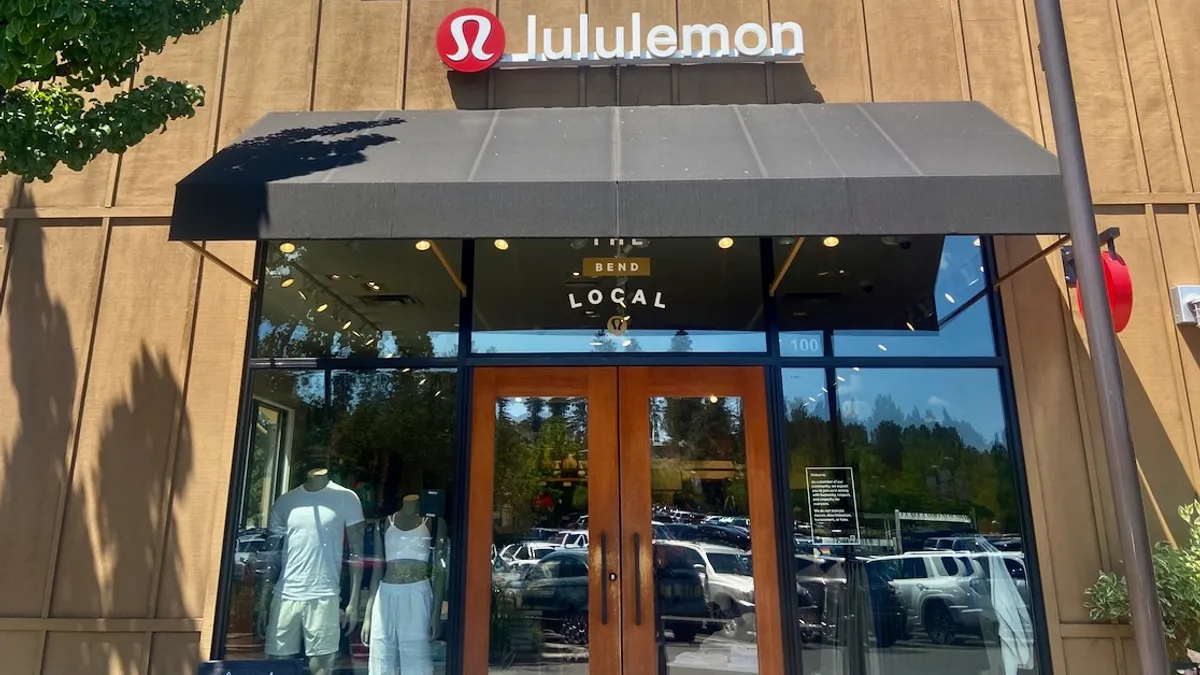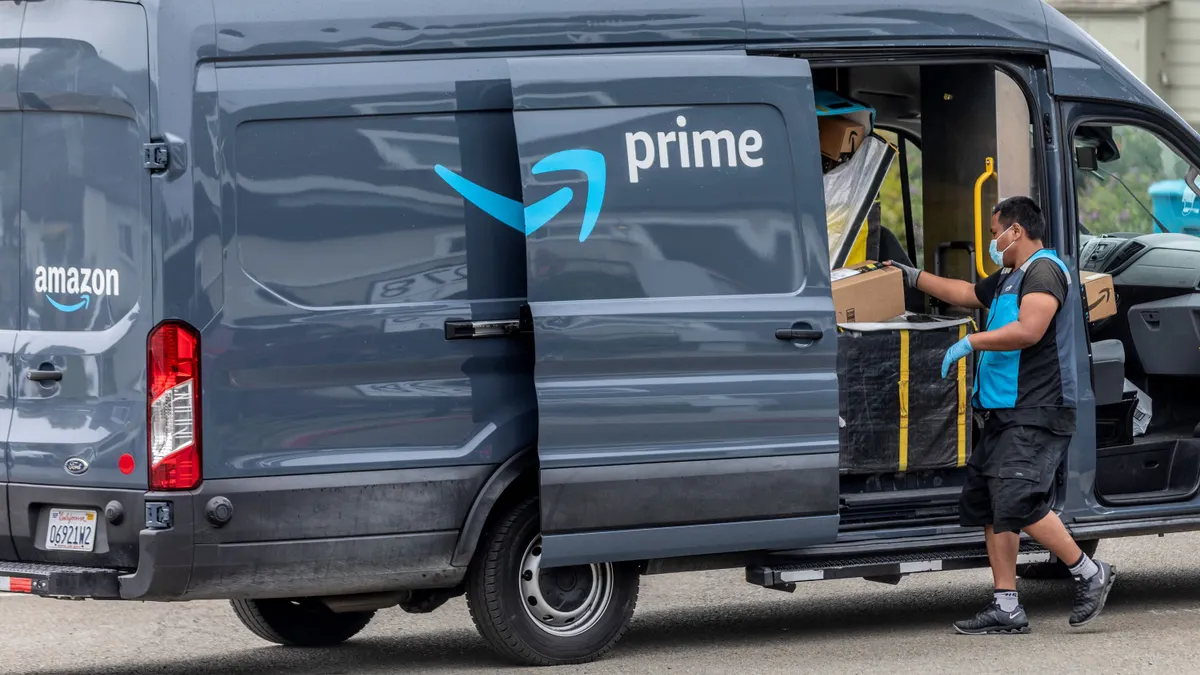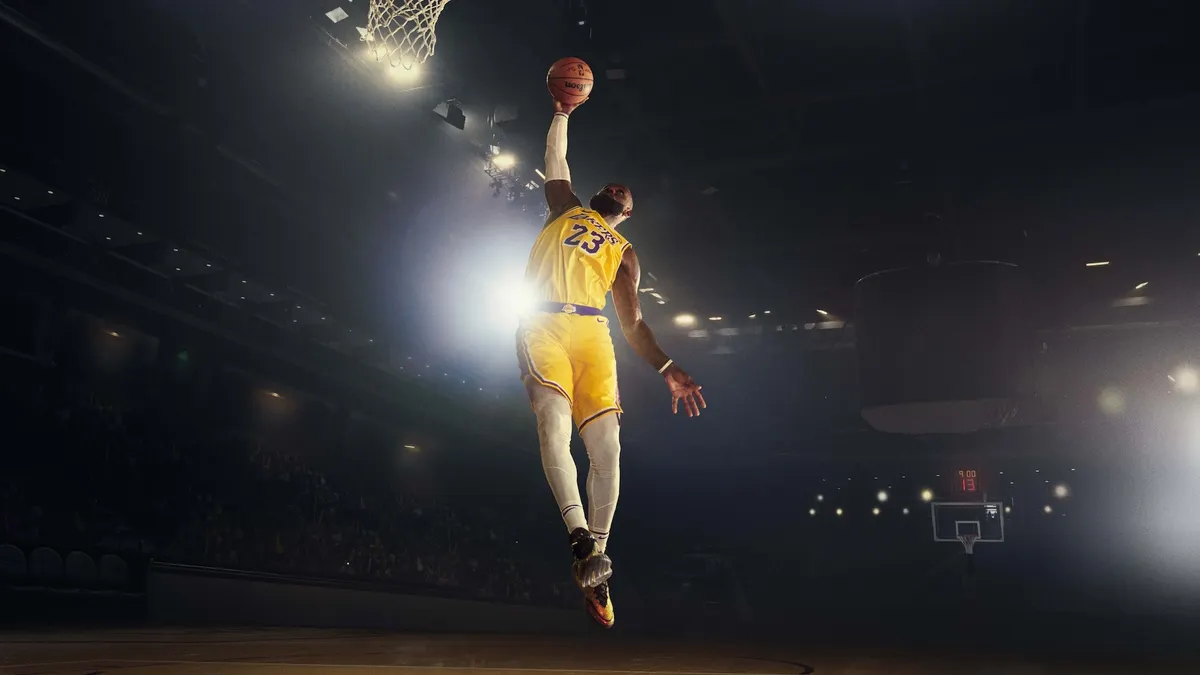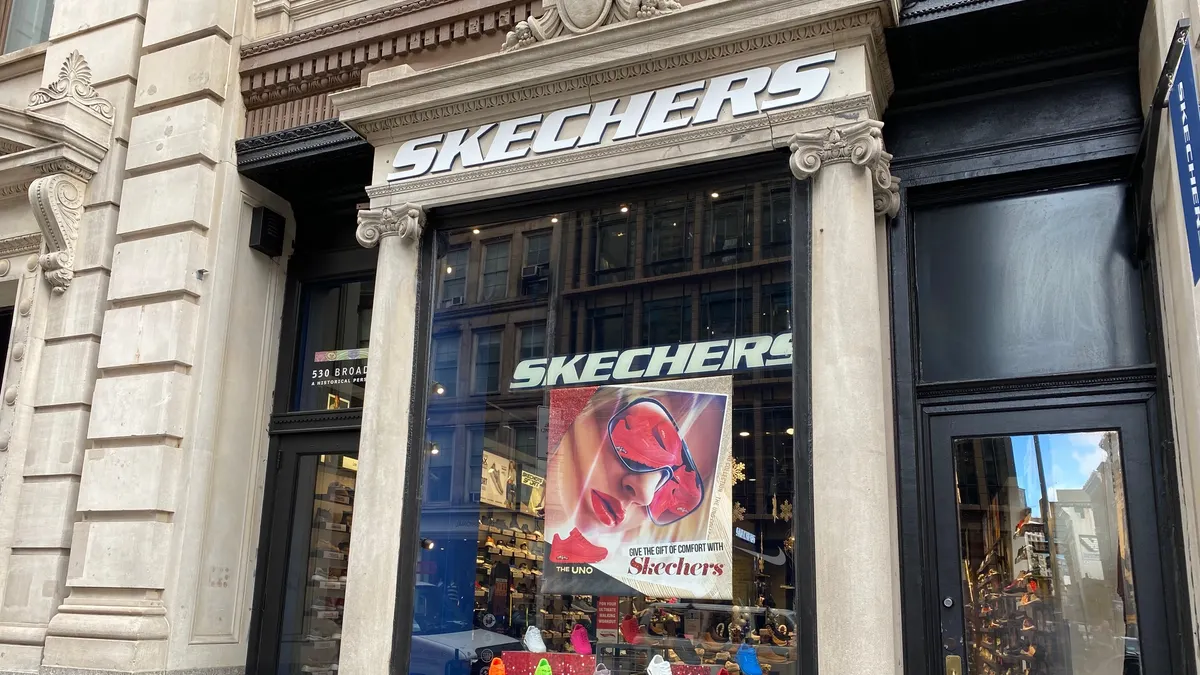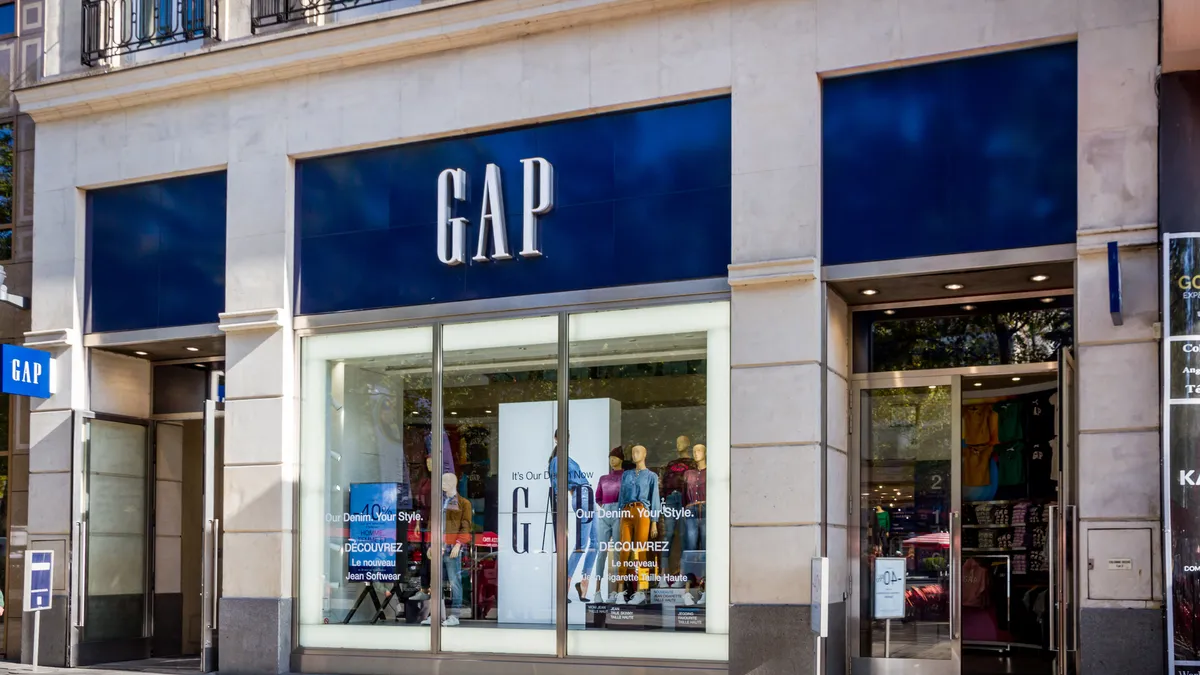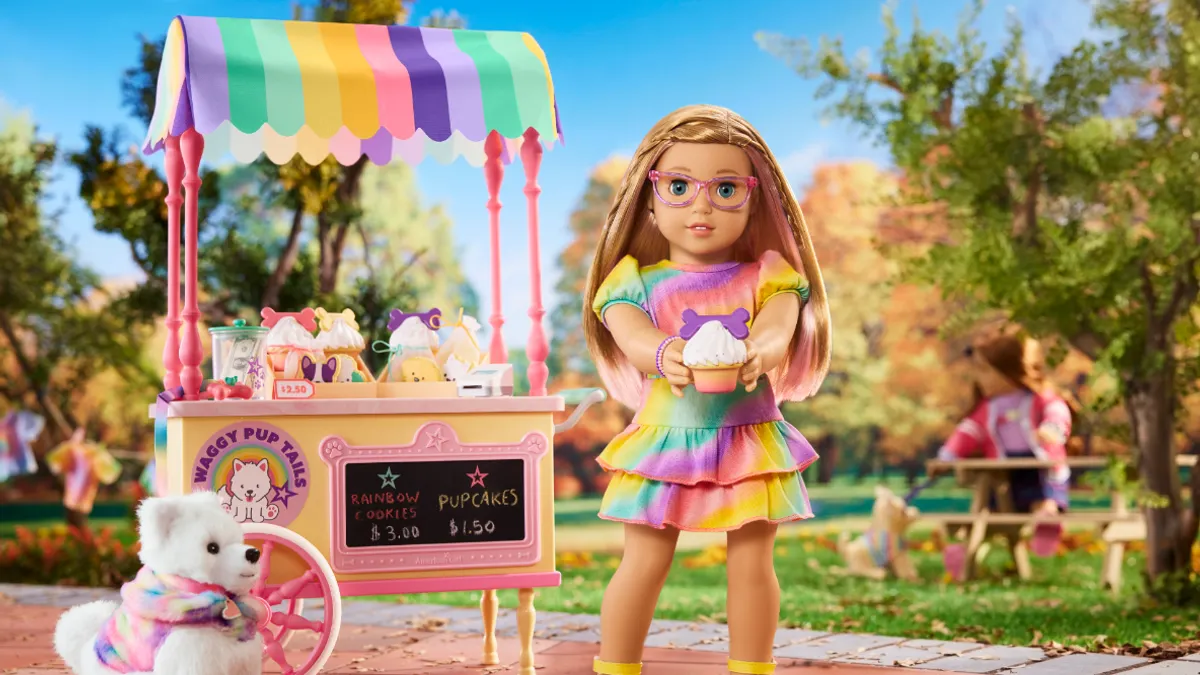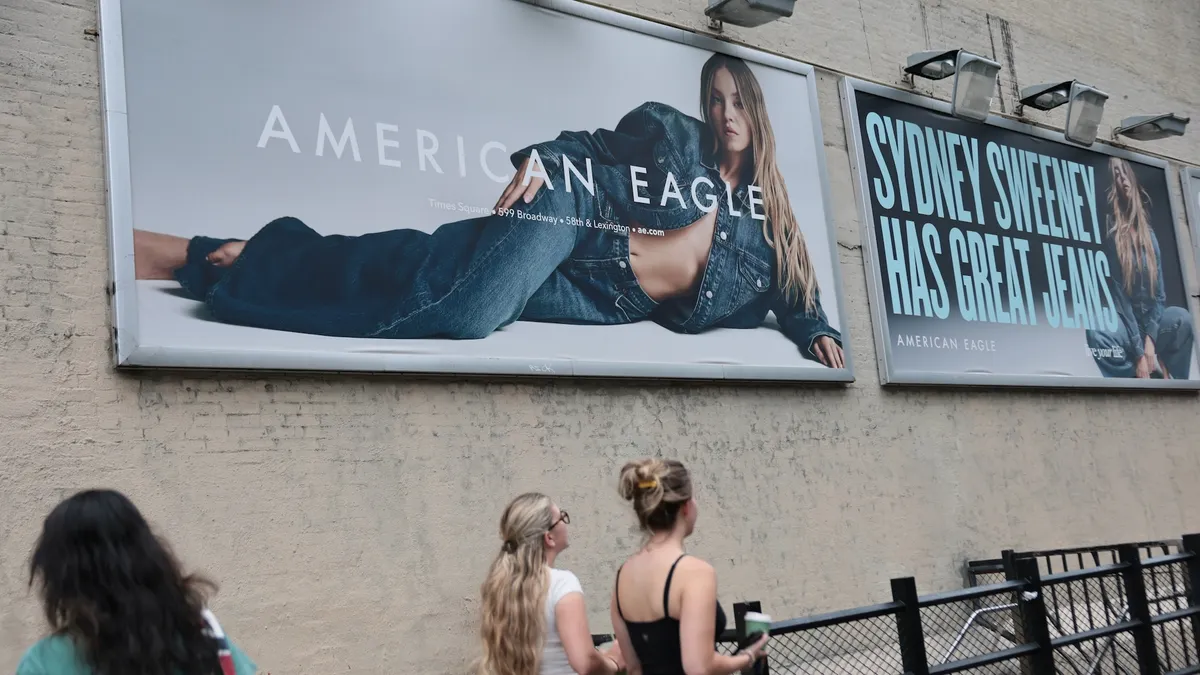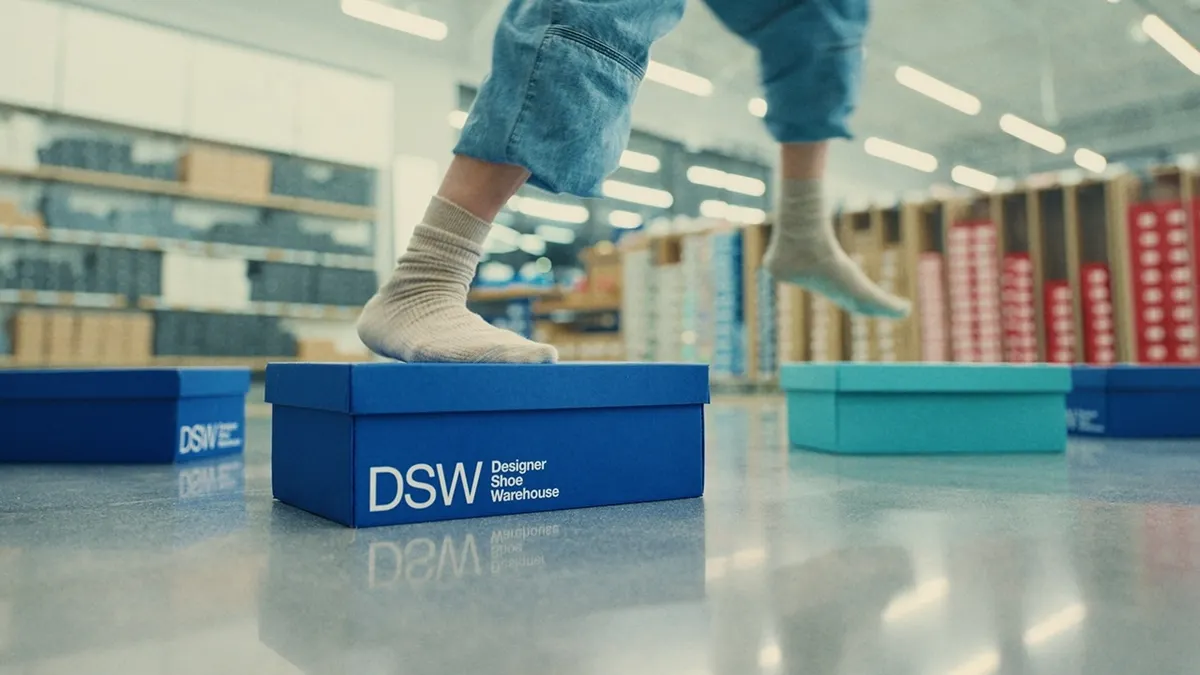The DTC landscape looks different now than it did when now-major players in the space — like Warby Parker or Allbirds — entered the scene.
Funding became harder to come by as expectations to reach profitability shifted.
And the ethos of “cutting out the middleman” — something that defined direct-to-consumer brands for years — started to fade as consumer preferences changed around where they buy products. In turn, several brands have been building out their own store fleets as well as their roster of wholesale partners.
Last year saw several brands making moves that helped drive the evolution of the direct-to-consumer space.
Nail care brand Olive & June was snapped up by the owner of Hydro Flask, while Casper changed hands yet again. Activewear brand Sweaty Betty, now owned by Wolverine World Wide, continued to build out its executive team and opened its first store in the U.S. And menswear brand True Classic expanded its reach by launching in 460 Target stores nationwide.
Looking ahead, brands need to be better equipped to handle the challenges associated with reaching profitability and changing distribution strategies.
While the industry — and what it means to be a “DTC brand” — is evolving, some companies are separating themselves from the rest. Here are some brands to keep an eye on in the year ahead.
1. Prequel
Prequel launched in July 2023 and has quickly expanded in the year and a half since.
Dr. Samantha Ellis, a board-certified medical and cosmetic dermatologist, launched the skin care brand in collaboration with brand accelerator The Center, whose portfolio also includes Saltair, Phlur, Make Beauty and Cyklar. The Center also previously housed Naturium before the skin care brand was sold to E.l.f. Beauty in 2023 for $355 million.
Prequel dubs itself a “solution-focused” skin care brand designed to address skin concerns.
“My goal with Prequel was to create a line of products that can be used before you ever need to see a dermatologist. Things that can help keep your skin healthy in the long term,” Ellis said in a statement on the brand’s website.
The brand initially launched with three products — the Gleanser, a glycerin cleanser designed to be used for face and body; the Skin Utility Ointment, a multiuse skin protectant; and the Urea Repair 10% Urea Moisturizing Milk, a moisturizing product for face and body. Prequel has since expanded its assortment to 20 products, including serums, peels and sun protection.
After exclusively selling to consumers via its website, the brand expanded its distribution by launching at Target last August. Prequel in December deepened its assortment at the mass merchant by adding six more products to its lineup.
On its own website, the brand saw traffic in the U.S. grow 925.1% in December compared to the year-ago period, according to data provided by Similarweb.
2. Bogg
Bogg, the brand known for its Croc-like bags and totes, was founded in 2008 by Kim Vaccarella. The products are “made for the nurturers, the organizers, the pack-leaders, and the orchestrators — those who know that making the most of every day means staying organized, bringing the fun, and keeping it all together,” according to the brand’s website.
The bags use washable and durable materials, the company said, and are designed to keep their shape when set down, rather than collapse.
While the brand is over 15 years old, it’s been gaining momentum recently.
In November, Bogg announced a partnership with WinCraft by Fanatics to launch a collection of totes featuring NFL and collegiate teams. The brand in December also launched into nearly 2,000 Target stores and the mass merchant’s website, adding to its growing list of wholesale partners that also includes Dick’s Sporting Goods, Academy Sports and Outdoors, Bloomingdale’s, Dillard’s and Amazon.
As of November, Bogg has sold over 4 million products across 15,000 stores, Amazon and its own website. The brand saw December website traffic in the U.S. grow 76% year over year, according to Similarweb. Bogg expected to reach over $100 million in sales in 2024, according to the company, and notch $200 million in lifetime sales.
3. Pepper
Pepper launched in 2017 as a solution for people with smaller breasts, who have trouble finding bras that fit properly.
In its own messaging, the brand targets larger, more established bra companies that have left holes in the market.
“Traditional bra brands have created crazy aspirational body standards that are impossible for most of us to achieve without a very expensive, unnecessary boob job,” Pepper said on its website. “It's no wonder women today have trouble feeling confident with their body when we grew up watching models in a fashion show (you know, that one) with unimaginable cleavage.”
The brand launched as a Kickstarter campaign with a goal of raising $10,000 — which it met within 10 hours. By the end of its 13-day campaign, the brand said it had 950 backers.
Pepper says its products are designed for people with small breasts of all shapes and sizes, something that has been overlooked by others in the sector.
“Even the largest plus sized retailer in America starts bra sizes at a C cup — further reinforcing the misconception that if you're skinny, you must have small boobs and if you're larger, you must have big boobs. In reality, any size woman can have any size boobs. We're here to fill the gaps,” the company said.
To help overcome challenges often associated with buying bras online — consumers generally need to try on a bra in stores to ensure proper fit — the brand offers a Fit Guide as well as a Size Quiz on its website.
Pepper joins an increasingly crowded sector of DTC brands that have disrupted the space in recent years, some of them getting acquired in the process, including Adore Me, Savage X Fenty and ThirdLove.
4. Dieux
Dieux launched in 2020 and soon after became popular for products like its reusable eye masks and Instant Angel moisturizer.
“Our experiences as consumers and beauty industry professionals fueled us in creating a brand that is religious about results and explains how we get to where we are,” the company said on its website. “Dieux’s products are price transparent, rooted in science, accountable and responsibly sourced.”
Last year, the skin care brand tapped Sephora as its first wholesale partner in a deal to sell through 714 of the beauty retailer’s store and its website.
And in October, the brand tapped an industry vet to lead it into its “next chapter of growth,” co-founder Charlotte Palermino said in a statement at the time. The brand hired Ryan Scott as its next CEO, succeeding Palermino. Scott had spent nearly a decade at beauty brand Tatcha, including as its president and chief people officer.
The brand last month saw its website traffic in the U.S. increase 161.4% year over year, according to Similarweb.
5. Rhone
Rhone was founded in 2014 by brothers Nate Checketts and Ben Checketts as a performance-driven brand for men.
“Rhone is fueled by a clear vision: positively impacting lives through a commitment to Mental Fitness, inspiring community, and crafting performance-driven products,” according to the company.
In the decade since launching, the brand has made a number of moves to drive its growth.
Private equity firm L Catterton in July 2022 sold its stake in the brand to a group led by Rhone management and other investors — a deal Rhone said helped it to grow about twice the rate it was before.
The brand has continued to build out its product assortment and brick-and-mortar footprint. In the fall of 2023, Rhone opened a store in Boston’s popular Seaport district, and the brand now touts 16 locations in total. The brand also expanded beyond its roots, recently launching a women’s collection and made-to-measure apparel.
More recently, it has deepened its ties to professional sports by forming partnerships with the NBA and LPGA Tour athletes Lilia Vu and Lauren Hartlage.
6. Bubble
In an effort to meet Gen Z’s unique skin care needs, Shai Eisenman founded Bubble.
“When we started Bubble, we looked around the skincare aisle and realized the options hadn’t changed much since we were young,” Eisenman said in a Q&A with a Walmart executive in 2021. “It was mostly the same stuff our moms used.”
The brand launched in Walmart in 2021 with products like clay masks, toners and cleansers priced between $12 and $19.
It has since expanded its distribution to more than 12,000 doors in North America through additional partnerships with CVS, Ulta Beauty and Amazon. The brand has also expanded into the U.K., with products sold in more than 500 Boots locations, as well as online at Beauty Bay.
Bubble has also collaborated with Disney to promote Pixar’s “Inside Out 2” movie, and traveled to several college campuses to market its products.
7. Kizik
The idea behind hands-free, slip-on sneaker brand Kizik dates back to 2009 when founder Mike Pratt designed and filed a patent for the shoe’s first prototype.
“The idea kept me up at night — how do you make a shoe that can collapse and pop back up? One that stays on after you step in, is more comfortable, and is so much more than just a slip-on shoe,” Pratt said in a statement on the brand’s website.
The brand officially launched in 2017, dubbing itself “the world’s first hands-free shoe brand.” In the years since, Kizik has secured more than 200 pending and granted patents.
The brand has been in growth mode in recent years. In 2024, Kizik continued to open stores, including at the Mall of America in Minnesota, King of Prussia Mall in Pennsylvania and a pop-up shop in New York City. The brand has also expanded its international distribution to areas like the U.K., Japan, Canada, South Korea and France through various strategic partnerships.
In December, the company recorded 1.8 million website visits in the U.S., according to Similarweb.
Kizik has also worked to build out its executive team with a slate of industry veterans. In November, the brand hired longtime Nike executive Andreas Harlow as its senior vice president of design and named former Sperry and Converse exec Elizabeth Drori as its chief marketing officer.
8. Sézane
Morgane Sézalory started out by selling vintage pieces on eBay. Sézalory in 2013 created apparel brand Sézane, which the company describes as “the first French fashion brand born online.”
The company has expanded over the years, creating the Octobre Éditions menswear in 2016, homeware collection Les Composantes and more recently a children’s line called Petit Sézane.
“It took time to imagine Petit Sézane, understand the journey through childhood, and learn how to dress each discovery with pieces that allow children to move without limits and express themselves fully,” Sézalory said in a statement.
The French brand has gained popularity in the U.S. and has grown its physical presence to reflect that, including by opening a pop-up location in Washington, D.C.’s Georgetown neighborhood last May.
Sézane in December notched 3.3 million website visits in the U.S., a nearly 40% year-over-year increase, according to Similarweb.
Sézalory in 2018 also created a philanthropic program dubbed Demain, which partners with charities that work to provide access to fundamental rights, including health and education.
9. Ernesta
While the leap from fitness equipment to home decor may not be the most obvious transition, John Foley, Hisao Kushi and Yony Feng took it on nonetheless.
The Peloton co-founders in the fall of 2022 announced their next venture: Ernesta, a direct-to-consumer, custom-cut rug brand. The company raised $25 million in Series A funding ahead of its launch.
Following a beta launch, the brand officially debuted in September 2023.
Ernesta has been quickly working to grow its physical footprint, opening stores in New York City’s Upper East Side, Greenwich, Connecticut, and Bethesda, Maryland, just outside of Washington, D.C.
As of May, the brand raised $37.5 million and had a post valuation of $87.5 million, according to data provided by PitchBook. Ernesta’s website traffic in the U.S. also grew 217.4% in December compared to the same period in 2023, per Similarweb.
Correction: This story has been updated to indicate that Ernesta has a store in Greenwich, Connecticut.



